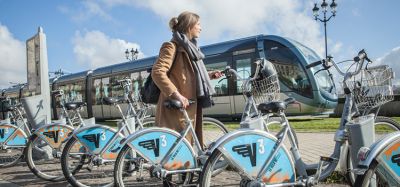The data challenge
- Like
- Digg
- Del
- Tumblr
- VKontakte
- Buffer
- Love This
- Odnoklassniki
- Meneame
- Blogger
- Amazon
- Yahoo Mail
- Gmail
- AOL
- Newsvine
- HackerNews
- Evernote
- MySpace
- Mail.ru
- Viadeo
- Line
- Comments
- Yummly
- SMS
- Viber
- Telegram
- Subscribe
- Skype
- Facebook Messenger
- Kakao
- LiveJournal
- Yammer
- Edgar
- Fintel
- Mix
- Instapaper
- Copy Link
Posted: 10 October 2017 | Eifion Jenkins (Programme Director at Transport Systems Catapult) | No comments yet
For Intelligent Transport, Eifion Jenkins, Programme Director at Transport Systems Catapult discusses the importance of gathering data and then safely sharing that data, and illustrates how that will help the UK move forward with finding intelligent mobility solutions.


We are in the midst of a revolution. Data is changing the world. It has become a new kind of infrastructure that underpins every sector from retail to finance.
Whilst transport has in many ways lagged behind other sectors, data will be essential to realise the vision of a future system that meets the expectations and exploits the capabilities of the internet age. To help people and goods move easily, cheaply and efficiently across every form of transport, we need data to flow freely too.
That data can help passengers, freight companies, transport operators and policymakers make better decisions.
By the end of 2020 there will be over 50 billion connected devices globally collecting over 2.3 zettabytes of data each year. Shared and open data gathered from these devices can underpin mobility solutions that support integrated, efficient and sustainable transport systems – what we call Intelligent Mobility (IM).
Intelligent Mobility solutions are already coming to market. The sharing and release of data on arrivals, departures, timetables, routes and fares by Transport for London (TfL) has supported the development of over 200 apps saving Londoners time and money. Meanwhile, it is impossible to ignore the rise of on-demand services such as Uber and Lift.
In a market where on-demand services are becoming increasing popular, the potential to move away from individual vehicle ownership towards cross platform Mobility as a Service (MaaS) solutions which wrap up different transport modes in one bundle is also there.
If it can be achieved, MaaS could personalise the travel experience, reduce road congestion and remove many of pain points associated with travel by public transport.
These mobility solutions are here now, but are only the tip of the iceberg of what is possible. Taking advantage of advances in machine learning, artificial intelligence and the lower cost of computing, data can be used to power brand-new technologies from autonomous vehicles to integrated smart ticking to optimising network resilience, as well as many other solutions not yet imagined.
Overcoming complexity
There is an enormous potential to tackle long-standing problems such as congestion and pollution in urban areas – if we can fully unlock the power of the data that is being created. But first we must overcome the complexity of the transport industry.
At present, data exists in siloes, controlled by individual actors such as train operators, telecommunications companies, leasing companies and local authorities. Literally thousands of companies interact to provide the transport but they are focused on their own operations rather than the overall system. Fears about cybersecurity and privacy regulations are compounding the situation.
As a result, current levels of data sharing in the UK transport sector constrains the development of new mobility solutions and could even reduce the size of future benefits offered by new technologies and business models.
To address this problem, the Transport Systems Catapult (TSC) is using its position as a neutral trusted broker. Its new Intelligent Mobility Data Hub allows the UK transport industry to take a major step toward resolving this issue by enabling the analysis and combining of large data sets in a secure platform. This new facility will allow UK companies to grow by offering new services to travellers, unlocking the door to innovations which were not possible before.
Businesses will be able to use the facility to work with SMEs and research organisations to create transport innovations. Existing data sets, such as mobile network data, traffic movement patterns and national roadworks data can be combined for the first time to help create solutions for transportation issues such as congestion, pollution and journey planning.
Partners who use the facility have access to powerful IT infrastructure for data analysis and a team of experts to help them. The platform also features highly secure storage and robust legal processes to ensure privacy and commercial confidentiality to allow partners’ data to be stored and analysed.
The IM Data hub is not the whole answer. However, it is an important step towards breaking down the barriers and making an integrated transport system which is more than the sum of its parts.
There is a big economic prize on offer, our recent white paper on the need to incentivise data sharing in the transport industry identified more than £14 billion of benefits to the UK. Moreover, we are increasing learning that when we make data as open as possible it maximises the creation of value and unleashes innovation.
Data is unlike many other assets. The benefits from its use and re-use grow exponentially the more it is shared and open, combined and linked with other data.
We hope that the transport industry will increasingly see the benefits of data sharing and put it at the heart of future strategies. Working in isolation to improve individual roads or rail routes will not deliver the improvements to keep our transport system fit for purpose in the long term. A new way of thinking about transport at a system level is needed and that starts with harnessing the value of data.
Related topics
Cyber-Security, Multimodality
Related cities
United Kingdom
Related organisations
Transport Systems Catapult








